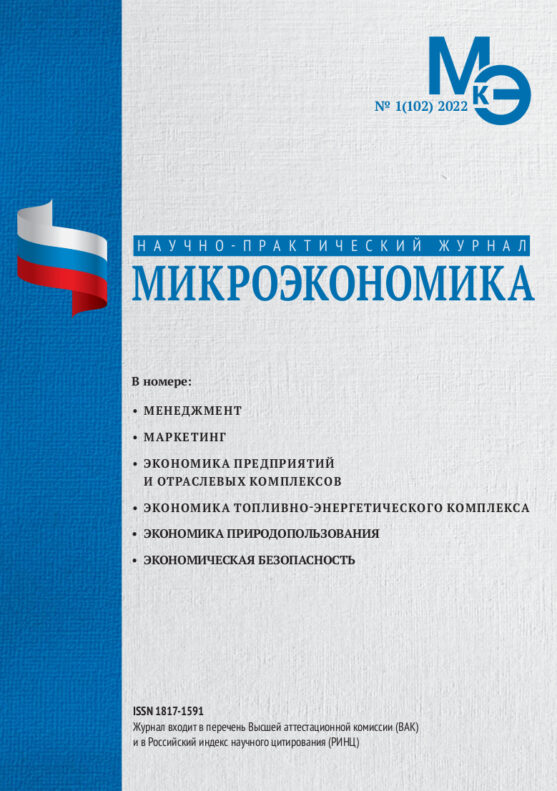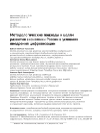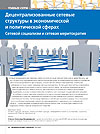Methodological approaches to the goals of Russian economic development in digitalisation
DOI: 10.33917/mic-1.102.2022.30-39
The article studies a set of national programmes and federal projects directly and indirectly influencing human resourcing of the national programme for creation of a digital economy in the Russian Federation. It studies implementation criteria of the programmes and projects and changes in their quantitative indicators. It specifically focuses on implementation of main methodological approaches: programme goal, complex-based, process-based, systemic, and situational approaches as a basis for a hierarchy of the set of programmes and projects.
References:
1. On national goals and strategic objectives in development of the Russian Federation until 2024: Decree of the President of the Russian Federation of 07.05.2018 No 204 (ver. of 19.07.2018). Collected RF legislation. 14.05.2018. No 20. p. 2817.
2. On the Strategy for scientific and technological development of the Russian Federation: Decree of the President of the RF of 01.12.2016 No 642. Collected RF legislation, 05.12.2016. No. 49. p. 6887.
3. On the federal budget for 2020 and the planned period of 2021 and 2022: Federal law of 02.12.2019 No 380-FZ. Official website for legal information http://www.pravo.gov.ru. 03.12.2019. effective from 01.01.2020. International economic activities.
4. On approval of the government program of the Russian Federation «Development of education»: Decree of the RF Government of 26.12.2017 No 1642 (ver. of 30.11.2019). Collected RF legislation. 01.01.2018. No 1 (Part II). p. 375.
5. On approval of the government program of the Russian Federation «Economic development and innovative economy»: Decree of the RF Government of 15.04.2014 No 316 (ver. of 30.11.2019). Collected RF legislation. 05.05.2014. No 18 (Part II). p. 2162.
6. Description of the federal project «Regulatory control of digital environment» of the national program «Digital economy of the Russian Federation» (approved by the Executive Committee of the Government Commission for Digital Development and Use of Information Technologies for Improving the Living Standards and Conditions of Doing Business, Protocol of 28.05.2019 No 9), published online. URL: https://digital.gov.ru as of 09.07.2019
7. Description of the national project (program) «International cooperation and export» (approved by the Executive Committee of the Council on Strategic Development and National Projects attached to the President of the Russian Federation, Protocol of 24.12.2018 No 16). Not published.
8. Description of the national project (program) «Labour productivity and employment support» (approved by the Executive Committee of the Council on Strategic Development and National Projects attached to the President of the Russian Federation, Protocol of 24.12.2018 No 16). Not published.
9. Belous A.P., Lyalkov S.Yu. Vector of business development in the flow of the digital revolution. Banking. 2017; 10:16-19. (In Russ.).
10. Bodrunov S., Plotnikov V., Vertakova Y. Technological Development as a Factor of Ensuring the National Security, Proceedings of the 30th International Business Information Management Association Conference — Vision 2020: Sustainable Economic development, Innovation Management, and Global Growth. 2017. 8-9 November. Madrid. P. 66-74.





